
Types of Membership Sites to Consider
A membership site is a gated area of your website that members pay a monthly or yearly subscription fee to gain access to exclusive and premium content.
Membership sites come in all sizes and shapes. Some are online forums where members share a common goal while others offer people training material, online courses, or access to exclusive products.
Finding the perfect membership site model for you your business can be a challenging task, particularly with the massive number of options available.
With this in mind, in this guide, we’ll look at the most popular types of membership sites, the pros, and cons of each, things to consider with each, and the best ways to use each model to scale your business. Let’s get started!
Updated Style Membership Type
Using updated style as your option is perfect for building engagement with your audience. Members pay a monthly or yearly fee to get access to your latest-and-greatest content.
This model is suitable for new creators who don’t have an extensive library to provide yet. Also, this model is ideal for those who want the social part of membership without having to be the moderator. Updated style is great for anyone trying to grow their industry authority.
This option is powerful for making sales. If you offer content that is informative and valuable, members are 131% more likely to buy from you after reading your content. Building up an audience and keeping them in the loop helps you to offer a better customer experience.
Over 40% of customers have moved to a competitor because of customer service, so with updated content style, your competitors should be wary.
Membership sites owners using this model create a schedule for delivering content to their audience. This way members don’t get all the content at once: instead, the content is delivered at specific intervals.
The primary benefit of this model is that members receive content in smaller chunks and it gives them enough time to digest the content without feeling overwhelmed. This boosts member engagement, and it helps to boost retention rates.
One of the best examples of this model is Jamie Keddie’s storytelling membership. He offers his audience weekly content updates and a monthly webinar. Another example is QuHarrison Terry’s “Observer” level package membership. He offers his members updates around his business and products.
With this model, you can have memberships open all year-round. And whenever a new member signs up, their start date can begin.
If you pre-scheduled content to deliver every 20 days, members can access Batch 1 immediately, Batch 2 is delivered 20 days later, and Batch 3 is delivered 20 days after Batch 2, and so on.
If you’re new to content creation and you want a more hands-off model that prompts members to buy your other digital products, this model is good for you.
Community Memberships
In community memberships, members often pay a recurring fee to maintain access to a private online community. They rely on the proposition that the whole is stronger than one.
Community memberships need a lot of hands-on management, more than a content library, to make sure members stay safe and engaged.
Facebook Groups and other social media groups are a common option to use. Anyone can start a group. So, how does this option work as an extension of a business?
Customers pay more for convenience. And they’ll pay more for a human touch in their experiences. Plus, a community membership site can fulfill an emotional connection in business. Also, 27.3% of consumers use an online community dedicated to a product or service to search before making a purchase.
So a community-based model can not only help sell memberships but it can help you sell digital downloads and online courses, too. Many online community memberships offer email updates and organize annual events for member meet-ups.
You can pick a specific topic or niche to build your community around. Because community sites work well when focused around a specific topic or niche that unites the community.
For example, you can build a community membership where members talk about gaming, digital marketing, or personal finance. One of the best examples of this model is RJ McCollam’s Hector, which focuses on freelancers.
Community memberships are just as versatile as content libraries. However, community based memberships tend to require more management via a community administrator or moderator to keep the community members engaged and on track.
But if you want a community with minimal work, try the updated style membership.
Evergreen Membership Sites
This model of membership sites is perhaps the most common. It’s called evergreen because the content stays relevant for a long time. Evergreen memberships can typically use a drip-feed method of delivering specific content to members.
A drip feature allows you to pre-schedule content to be delivered to members in a certain sequence and at specific intervals.
An evergreen site is ideal if you provide information that doesn’t change, such as instructions for how to log-in or evergreen tasks related to your niche topics.
You can upload and schedule all your member content and have it send automatically. This is often done using membership software like aMember or in email applications.
The evergreen model is great for:
- Traditional memberships with monthly subscription fees and new content being regularly released.
- Sites where people can sign up for a freebie / sample, or immediately buy a product, and get involved with fellow members in the social group.
- Online, self-study materials based on common problems, subjects, or needs.
One of the top benefits of this model is that you save time and work more efficiently when you create evergreen content. This enables you to produce new materials, rather than updating older items in order to make them accurate and relevant again.
This type of site is ideal for customers who want ‘instant’ answers, instructions, ideas, or other types of solutions related to the niche topics. Plus, happy members are more likely to recommend and refer others to you and the site.
An evergreen site is easier to run on a technical level because once the site is up and accepting new members you can leave the tech side. An evergreen site caters more to the growing expectation for the content to be on-demand.
This is the reason sites like Netflix are so popular; this relates to changes in how people want to get content.
Software Based Membership
This membership model is also called SAAS or software as a service. It is a model where the software is available for download or something the buyer can install in their device and the software is located on the web server but it’s controlled by the software vendor.
Buyers who pay a membership fee can access the software through browsers.
There are several benefits for both the customer and the software vendor when the software is sold using this model:
- It limits software piracy.
- The buyer doesn’t have large upfront costs.
- Fast and easy updates.
- The ongoing costs are lower than buying expensive enterprise software.
- It’s easier to offer support because there’s only one version of the software. There are no compatibility issues and other issues are standardized.
- The software is scalable because once you have built it for a few people; you can easily scale it to be used by several users. And you can easily absorb several users within a short time.
Membership prices depend on many factors. A few of the most important things include:
- The features you want to include.
- The number of users.
- The amount of storage space needed.
- The amount of bandwidth used.
Monthly Newsletter
Before the internet, businesses and organizations used printed newsletters to keep in touch with prospects and customers.
As more businesses and organizations developed an online presence, digital newsletters continued to inform current members, and customers, while also attracting new followers, community members, and customers.
So, you see, newsletters have always played an important role in bringing people together and communicating effectively with like-minded people.
This is done through newsletters, which have a specific purpose, topics, and elements. The messages focus on a main subject or niche that interests subscribers. Part of the success of newsletters is due to their predictable, consistent delivery which builds long-term relationships.
Paid newsletters have content that subscribers pay to get access to. Like the analysis of stock or products, investment advice, news articles about a specific topic, marketing tips, or business advice on any topic.
People paying to read newsletters may sound strange, but it’s a great option for a subscription model. Email newsletters, for instance, get right in front of people, where they’re spending their time and they don’t compete for attention in a social news feed.
Newsletters are seeing a reawakening because algorithmic timelines have become saturated with advertising, click-bait, and irrelevant information. This has made newsletters the best way to reach people where they are, and you can almost guarantee they’ll read.
Paid monthly newsletters are like a subscription to a newspaper; you love reading, and you’ll happily pay to read the best news of the day. This membership model offers convenience to you and your audience, and it helps you move from a click-driven writing model.
For example, Ben Thompson’s Stratechery newsletter is delivered three times a week and subscribers pay $10 per month to subscribe, or $100 a year.
With 1,000 subscribers, this means Ben makes over $10,000 per month and $100,000 per year. That’s good money! Ben has sent over 1,000 newsletters and he is one of the most trusted sources in the technology industry. There’s a space for paid newsletters.
But remember the more unique you make your newsletters, the easier it becomes to put it out there. This is about creating value for customers in a new format.
You can deal with a broad or narrow topic, but to be more successful, cover a specific industry or niche. Choose a niche with enough content to keep writing long-term.
Price your newsletter based on your niche, the audience receiving it, and how often you’ll be sending updates. A monthly newsletter will allow you to build a sustainable business that brings you closer to clients, who value your content. This makes paid newsletter powerful.
Coaching Membership
What’s better than getting one-on-one time with your audience, empowering them, and earning money as a personal coach? Coaching a group of people through a membership, where you can teach and guide multiple people using your self-created, professional materials that meet your members needs.
For example, Becky Mollenkamp’s runs a $300 a month VIP coaching program. To charge these higher prices you must have an exceptional reputation, high-quality products or services, and expert knowledge.
You can cut it down to 15 members a month to make people work in order to land a coveted spot.
Defining coaching services as a membership isn’t as straight forward as previous models. However, because it needs to be renewed occasionally, as seen in the monthly example above, it can be used as a recurring service in a membership.
This model is best combined with additional add-on options which enhance the product/service for an additional fee. Depending on your audience and needs, you may prefer to keep the offer separate offer from your core membership.
If you’re ready to offer coaching services, you can tap into the personal coaching industry, which is expected to hit over $1.34 billion by 2022. So if you have the skills, the time, and an audience, you can open your business up for one-on-one interaction with the coaching memberships.
You can also create a membership group around it and offer exclusive training sessions for them as a whole. The benefits are the same, but you’ll reap more profits. Coaching services aren’t a traditional membership model and they’re not for everyone.
However, if you have the means, it’s a potentially powerful source of recurring revenue.
Curated Content Memberships
Do you have a ton of content or are you giving away free content? Well, a content cache or content library option is ideal for you.
But if you’re are new to content-creation and are still building your content inventory, this model will work for you down the line than at your starting point, especially if you’re looking to build a lifetime membership tier.
It doesn’t matter if you’ve already given some or all of your free content because you can still charge for giving access to it. Remember, the biggest driver for great customer experience isn’t about delighting customers. It’s more about reducing the efforts they take to achieve their goals.
Consumers will always pay for convenience. Time is short and everyone wants to save it. If your offer explains how it will save members’ valuable time, you’ll be more likely to grow your membership when you share that valuable benefit.
For example, McCoy Buck’s Moho Studio Academy is a content cache. It offers the tools and resources members need to learn animation. Likewise, Dewane Mutunga’s “Writer School” is another example of curated content membership because it provides a video resource library.
The two creators have different audiences, but both of them have something in common. They have the content stores to offer members convenience and easy-access to a library that will better their lives. So if you’ve got a ton of content readily available, this model can work for you.
Course memberships
A course membership site is a great way to run an online course, keeping all your information restricted in a private membership wall. These courses can be monthly dripped content or upfront by having all the content available immediately to work through at your own pace.
This can be an evergreen course that people join any time; this is good for standalone courses with no interaction with the creator. Also, you can run the course at certain times to allow everyone to work through things together.
Plus, you can adopt an activity-based content delivery approach where members should complete certain activities or tests before moving to the next module or lesson. You can sell course memberships at a fixed price, and/or have your members pay everything at once or in installments.
Courses usually comprise a mix of different content such as audio lectures, training videos, articles, quizzes, or downloadable resources. This membership model gives you the option to set up a discussion board or a forum for members to discuss and help each other throughout the course.
This model is very successful because it gives course-creators flexibility in delivering engaging and valuable membership experiences. And for members with access to a private, members-only area; this is enough incentive to continue paying for their membership even after they’ve completed the course material.
Tips, Tools, Resources, and Memberships
This membership model offers members big savings, since it eliminates time-consuming work. It offers tools and resources that can be used as-is or with minimal tweaks. With a done-for-you monthly or annual subscription program, it’s easier to bundle your work and drip-feed the content to your members.
For example, if a blogger, a teacher, or a freelance writer needs new content every week, they can take your work and tweak it. This’ll help them stay on board, save time, and they’ll keep getting your new content.
This model is an ideal option for the right audience. If you’re interested in this model, it’s probably because you’ve have experienced this need in your own life. Since you tend to have a lot in common with your ideal customer, this may be your intuition kicking in to guide you.
However, for this type of membership, you must create materials frequently to meet their needs. So it’s good for you to think about how you can organize the content perfectly from day one.
Expert Interview Style
One of the best ways to add continuity to your product or service offer is by creating an interview series where you can interview an expert in your field monthly and release the audio/video recording of the interview to your paying members.
It’s that simple… but simple works! For example, the dating advice guru David DeAngelo sells a monthly interview series as an upsell to his leading products.
The interview series is called “Interviews with Dating Gurus” and it features a new expert each month who comes to the call to discuss various facets of women and dating.
When interviewing an expert in your niche you can share a fresh perspective with your members. This also gives you an opportunity to offer additional value to your audience and charge them monthly or yearly. You can also offer this option free through a podcast.
By doing this, you’ll be able to build your audience, offer value to listeners, and give your guests a platform to gain more exposure while having a great chat with a fellow entrepreneur. This is a win-win-win!
Webinar or Video Training Memberships
If you’re looking to raise awareness and grow a membership site, a webinar is a golden ticket to a stream of recurring income. Although running a webinar membership site is daunting, if you execute it properly, the rewards are worth the effort.
This model is a great way to gain exposure. By running and promoting a webinar, you can grow your mailing list, increase social followers and it can help drive traffic to your website.
If you have an existing audience, a webinar is a powerful way to sell your membership site. You can display your pages, sell the valuable content, and explain how your webinar attendees will benefit from signing up.
You can offer a webinar or video training as premium content for your site. Regular, recurring webinars will make your members feel like they’re getting value for their money. This keeps people interested and encourages them to continue subscribing.
When you think of a membership site, you probably think of training inside a restricted members’ only area. The training could be in the form of video, audio, a webinar, PDFs, or articles.
In video training membership, the content may be available once, or it may “drip” revealing the new content over time. This model lacks the community element meant to foster discussion and accountability for members.
PLR Membership Model
This is another great membership model. For instance, you can create a PLR site that releases content for the dating niche. Let’s say you release 30 new, high-quality articles on how to be charming and persuasive.
Then your members, who have their sites or list in this niche, can use the content in any way they want, for instance, they can post the content on their blog, they can make an ebook out of the content, or they can use the content for email copy.
You can cap the membership capacity for this model at a fixed number of people to keep the content from being overused and losing its value. Apart from niche-specific PLR sites, you can run general PLR stores that cater to broad niches and offer a la carte PLR packs.
High Ticket Membership Model
Creating and selling high ticket memberships is one of the key ways to earn income and create a deeper impact on your clients’ lives. Do you bring deep and transformative impact to your clients but you don’t earn the income you want? Do you trade your valuable time for money and still feeling exhausted?
If you feel like you’ve been undercharging, and you want a formula to attract the ideal client, for whom you can offer your powerful content, then high ticket membership is for you!
Premium or high ticket membership is an evolutionary way to serve your clients. With this model, you can earn more money than you have and you’ll be able to bring all your skills and talents to working with your clients.
Plus, you can travel or do other things that you love while still being supportive and transformative to your ideal audience.
High ticket membership model allows you to create a deeper impact on your customer’s lives because you get to work with the best, most dedicated, and highly motivated clients.
Start by transitioning from the “hours-for-dollars” trap. This will help you learn how to sell the value of your services and offer life-changing results. With the premium or high ticket packages, it doesn’t matter how profitable a niche is.
What counts is your ability to help your clients better lives and solve their problems.
There will always be a need to better and improve someone’s life. And there will always be a market for helping people to solve their problems. So, the goal is to stop looking for the next “profitable niche.” Instead, specialize in solving that one problem you’re good at solving.
The best high ticket membership offer comes from looking at yourself and not out there in the market.
With that said, health/fitness, finance, personal development, and relationships are four niches where high ticket memberships thrive. Thus, if you can solve a major problem in any of these niches, then you can charge between $5,000 and $10,000 to help people ease their pain or solve their problem.
If your customers are always telling you they like your product or service, but it’s too expensive, then you haven’t sufficiently communicated the value of your offer. Show them the value of what you’re offering and you’ll have people competing to buy your premium packages no matter how expensive they’re.
Product Bundle Membership Sites
If you have Netflix, then you’re already familiar with this membership model. This model can help your sales significantly, and it makes it easier and cheaper for your clients to have access to your products.
This model is ideal for you, if you have a ton of related products to offer. Instead of selling a product individually, you charge members a flat monthly fee to access several or all the products for a certain period.
Because media subscribers account for over 46% of US consumers, this option is popular among several demographics.
Over 15% of all online shoppers have signed up for an e-commerce subscription, thus there’s a potential audience to reach if you bundle your products as a monthly package. To succeed with this model, you must know your customers and offer a bundle that appeals to them.
Do you have products to bundle together? Do you understand your audience? If so, you can join the subscription economy and use this model to your advantage.
Combination/Hybrid Membership
This is a mix of different membership options, which you set up to suit you and your clients or members. These memberships are based on an individualized model created by combining the additional options you like and need.
For example, you can combine an online course with a community-based membership plus core information combined with new content each month and some products scattered in there to boost your success.
I’m not saying you over complicate things and try to do a bit of everything, maybe the above models aren’t right for what you want to achieve. That’s fine because they aren’t set in stone; they’re just a guide to what’s possible.
So mix and match to your heart’s desire and create a membership site that perfect for you and your audience. If properly implemented, this hybrid model can help your business increase audience engagement, attract new members, and improve revenue.
You Can Make It Happen
Remember, a membership site isn’t for the faint of heart–success won’t come overnight, but if you’re committed to creating one, it can offer recurring income for you and it can help you build a strong online tribe to support your business.
Think about your expertise and see which of these models makes the most sense. These models have been tried and tested, but adding your unique voice to one of them could turn your expertise into a solid business for you!
If the models don’t feel like the “perfect fit” for you and your audience, you can always mix and match to come up with the right balance of materials that’ll keep your audience engaged and bring in a stream of recurring income.
Membership Type Checklist
It takes a lot of time and effort to build a successful membership site. Use this checklist to determine which type of membership site is ideal for your audience and what you’re offering.
Updated Style Membership Type
- o Members pay a monthly or yearly membership to access your latest-and-greatest content.
Pros
- o Helps to build engagement with your audience.
- o Ideal for new creators who don’t an extensive library to offer yet.
- o Perfect for those who want the social part of a membership site without having to be the moderator.
- o Update style is great for making sales.
- o Members receive content in small chunks and they have enough time to digest the content without feeling overwhelmed.
- o Boosts retention rates.
Cons
- o Creating content is time-consuming.
Community Memberships
- o Members pay a recurring fee to maintain access to a private online community.
Pros
- o They offer a human touch and they fulfill an emotional connection in business.
- o A community-based membership can help sell memberships, digital products, and online courses.
- o They can help to organize annual events for member meet ups.
Cons
- o They need more hands-on management, to make sure members stay on track and engaged.
Evergreen Membership Sites
Pros
- o The content stays relevant for a long time.
- o With good marketing strategies, you can build a new stream of new members each month.
- o An evergreen site is easy to run on a technical level because once it’s set up and running you leave the tech side.
- o You can upload, schedule your content and let it roll out automatically.
Cons
- o You can’t rely on launch marketing.
- o It lacks inbuilt scarcity to prompt a decision.
Software Based Memberships
- o The software is available for download or something the buyer can install in their device.
Pros
- o Limits software piracy.
- o Fast and easy updates.
- o The ongoing costs are lower than buying expensive enterprise software.
- o It’s easier to offer support.
- o The software is scalable because once you have built it for a few people, you can easily scale it to be used by several users.
Monthly Newsletter (online or Print or hybrid)
- o Paid newsletters have content members pay to get access to.
Pros
- o Newsletters create a long-term relationship with readers, prospects, and customers.
- o They reward quality writing, making creating ad-free content sustainable.
- o They’re convenient to you and your audience, helping you move from a click-driven writing model.
Coaching Membership
- o It involves offering one-on-one time to your audience and empowering them while earning money.
Pros
- o You’ll be tapping into an expanding economy.
- o You’ll get more profit if you build a membership group around your coaching membership.
Cons
- o Defining coaching services as membership is challenging.
Curated Content Memberships
- o This is viable for you if you have a ton of content or if you’re giving away free content.
- o It offers members convenience by saving them from hours of searching through your site.
- o Offers members easy-to-access to a library to better their lives.
Cons
- o If you’re new to content-creation and are still building your content inventory, this membership type isn’t viable for you.
Course Memberships
- o This is a great way to run online courses and keep all your content restricted in a private area.
- o Courses can be monthly dripped content or upfront.
- o The courses can be evergreen that people join at any time.
- o You can adopt an activity-based content delivery approach where members should complete certain activities or tests before moving to the next module or lesson.
Pros
- o Offers creators flexibility in delivering engaging and valuable membership experiences.
- o Provides you the option to set up a discussion board or forum.
Cons
- o Creating content is time-consuming.
Tips, Tools, and Resources Memberships
- o Helps members save time because it eliminates time-consuming work as they get tools and resources that they can use as-is or with minimal tweaks.
- o It’s easy to bundle your work and also drip the content out, especially with a done-for-you subscription program.
Cons
- o You must create a lot of consistent material. So it’s good you think about how you’ll organize the content from day one.
Expert Interview Style
By interviewing an expert in your field you can:
- o Offer your members a fresh, outsider’s perspective on the topic.
- o Offer a lot of value easily and charge for it.
- o Add continuity to what you’re offering.
- o Give your guests a platform to gain more exposure while having a great time with a fellow entrepreneur.
Webinar or Video Training Memberships
- o Helps to raise awareness and grow your membership site.
- o Promoting your webinar training membership can help grow your mailing list
- o Recurring training makes members feel like they’re getting the value of their money.
Cons
- o Lacks the community element meant to foster discussion and accountability for members.
PLR Membership Model
- o You can create a PLR site that releases high-quality content and your members can use the content in a way they want.
- o Cap the membership capacity for this model at a fixed number of people to avoid the content being overused and losing its value.
High Ticket Membership Model
- o High ticket memberships create a deeper impact on your clients’ lives.
- o They’re a formula to attract the ideal client, whom you can offer your powerful content.
- o The best high ticket membership offer comes from looking at yourself and not out there in the market.
- o Show your customers the value of what you’re offering, and they’ll be competing to buy your high ticket packages no matter how expensive they’re.
Product Bundle Membership Sites
- o Instead of selling a product individually, you charge members a flat monthly fee to access several or all the products for a certain period.
Pros
- o Helps your sales immensely.
- o It makes it easier and cheaper for your clients to access your products.
Combination/Hybrid Membership
- o This is a mix of membership types. It’s set up in a manner that fits your audience and what you’re offering.
Pros
When properly implemented, the hybrid model can help to:
- o Increase audience engagement.
- o Attract new members.
- o Boost revenue.
- o Reduce churn rates.
Types of Memberships Worksheet
A membership site is a great way to generate recurring revenue and build a loyal fan base. There are many types of membership sites to choose from. Use this worksheet to figure out which type of membership site is best for you and your audience.
|
Types of Membership Sites |
New to content creation? | Amount of time available | Need special skills? | Type of content |
| Updated Style | ||||
| Community | ||||
| Evergreen | ||||
| Software Based | ||||
| Monthly Newsletter | ||||
| Coaching | ||||
| Curated Content | ||||
| Course | ||||
| Tips, Tools, and Resources | ||||
| Expert Interview Style | ||||
| Webinar or Video Training | ||||
| PLR Membership | ||||
| High Ticket | ||||
| Product Bundle | ||||
| Combination/Hybrid |

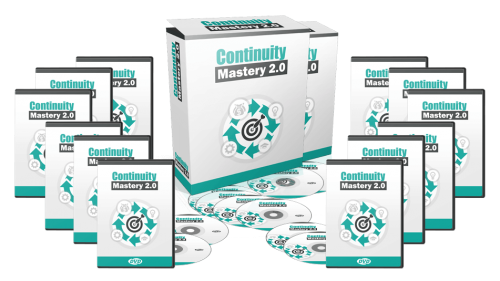
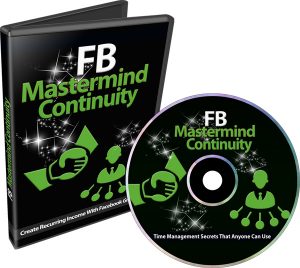
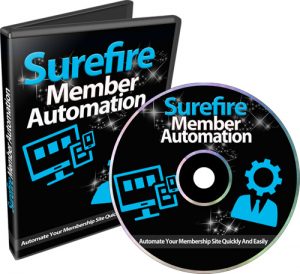
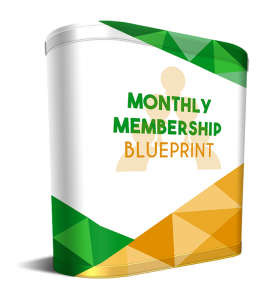
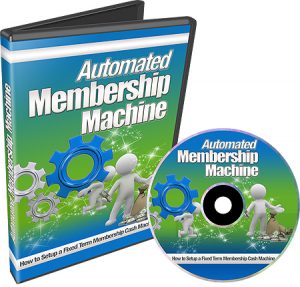
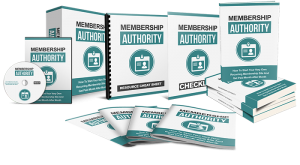
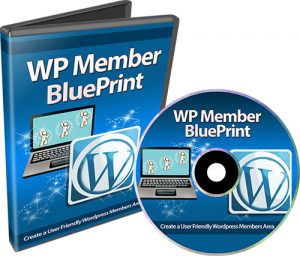
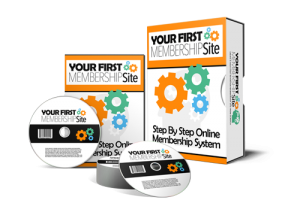
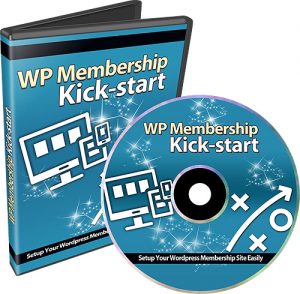


 ,/p>
,/p>

